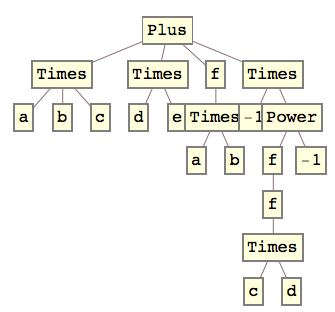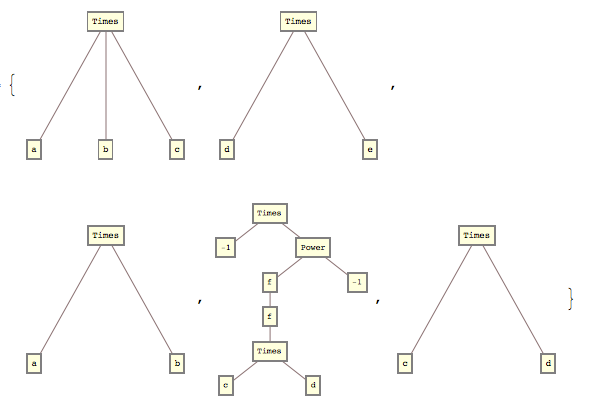Here's one way to count the number of multiplications in an expression (equal to or greater than the number of Times in the expression). It should also work for several other binary operators, Listable or not (although I haven't tested it on them).
t[x_, oper_: Times] := Tr @ ((Length[#] - 1) & /@
(Extract[x, {Sequence @@ Drop[#, -1]}] & /@ Position[x, oper]))
Usage
t[a b c + d e + f[a b] - 1/f[f[c d]]]
6
Under the hood.
Let's examine a b c + d e + f[a b] - 1/f[f[c d]], using Position and Extract and TreeForm.
The tree structure of the expression...
ClearAll[a, b, c, d, e, f]
(x = a b c + d e + f[a b] - 1/f[f[c d]]) // TreeForm

Then the positions of the head, Times.
Position[x, Times]
{{1, 0}, {2, 0}, {3, 1, 0}, {4, 0}, {4, 2, 1, 1, 1, 0}}
By dropping the final zero from each position, we obtain the instances of Times, including the arguments.
Extract[x, {Sequence @@ Drop[#, -1]}] & /@ %
{a b c, d e, a b, -(1/f[f[c d]]), c d}
...the number of items.
Length[%]
5
[t[] goes a step further to count the (arguments-1) for each Times, namely, 6.]
...a look at the structure of each of those instances of Times.
TreeForm /@ %%

